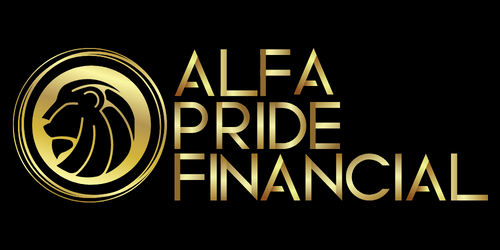When it comes to managing your finances, traditional banking has long been the go-to option for most people. However, in recent years, a new concept has emerged that challenges the traditional banking model - infinite banking. While both approaches have their benefits and drawbacks, there are some key differences that set them apart. In this article, we'll explore these differences and help you decide which banking method is right for you.
Traditional banking is a system that most of us are familiar with. It involves depositing money into a bank account and using that money to make purchases or withdraw cash as needed. The bank pays you interest on your deposits, but this interest rate is usually quite low. In addition, the bank uses your deposits to make loans to other customers, charging them a higher interest rate to earn a profit.
 Infinite banking, on the other hand, is a concept that was popularized by Nelson Nash, author of the book "Becoming Your Own Banker". It involves using a specially designed whole life insurance policy as a banking tool. The policy is structured so that a portion of the premium payments you make go towards building cash value within the policy. This cash value can be borrowed against, just like a bank account, but with several key differences.
Infinite banking, on the other hand, is a concept that was popularized by Nelson Nash, author of the book "Becoming Your Own Banker". It involves using a specially designed whole life insurance policy as a banking tool. The policy is structured so that a portion of the premium payments you make go towards building cash value within the policy. This cash value can be borrowed against, just like a bank account, but with several key differences.
First, the interest rate on loans taken against the policy is typically more favorable than the interest rates charged by traditional banks. This is because the policyholder is essentially borrowing from the insurance company’s funds, rather than the bank's funds. Second, when you borrow against the policy, you are not actually withdrawing your cash value. Instead, the policy continues to earn interest and dividends on the full cash value amount. This means that you can continue to earn interest on your funds, even as you use them to make purchases or investments.
So, what are some of the other differences between infinite banking and traditional banking? Here are a few key points to consider:
Control
With traditional banking, you are essentially handing over control of your funds to the bank. They decide how much interest to pay you, how much to charge for loans, and how to invest your deposits. With infinite banking, you are in control. You decide how much to contribute to your policy, how much to borrow against it, and how to invest the funds you borrow.
Risk
Traditional banks are subject to the ups and downs of the economy, and they may invest your deposits in risky ventures. This can put your funds at risk, particularly in times of economic downturn. With infinite banking, you are essentially self-insured. Your policy builds cash value over time, which provides a safety net in case of financial emergencies.
Flexibility
Traditional banking can be inflexible when it comes to loans and other financial products. Banks have strict requirements for borrowers, and may not be willing to work with you if your credit score is less than perfect. With infinite banking, you have more flexibility. You can borrow against your policy regardless of your credit score, and you can use the funds for any purpose you choose.
Legacy
With traditional banking, your funds are subject to estate taxes and probate when you pass away. This can make it difficult for your heirs to access the funds you leave behind. With infinite banking, your policy is structured so that your beneficiaries can receive the death benefit tax-free, providing them with a valuable legacy.
 One of the key benefits of infinite banking is that it provides greater control over your finances. Traditional banks are typically large institutions that have a lot of rules and regulations governing how they operate. This can make it difficult for customers to have a say in how their money is managed. With infinite banking, you are essentially becoming your own banker. You have control over how much money you contribute to your policy, how much you borrow against it, and how you use it. This can be empowering for those who want to take a more active role in managing their finances.
One of the key benefits of infinite banking is that it provides greater control over your finances. Traditional banks are typically large institutions that have a lot of rules and regulations governing how they operate. This can make it difficult for customers to have a say in how their money is managed. With infinite banking, you are essentially becoming your own banker. You have control over how much money you contribute to your policy, how much you borrow against it, and how you use it. This can be empowering for those who want to take a more active role in managing their finances.
Another advantage of infinite banking is that it can provide a level of financial security that traditional banking cannot. Because your policy builds cash value over time, it can serve as a safety net in case of emergencies. You can borrow against your policy to cover unexpected expenses, without having to worry about the impact on your credit score or the risk of defaulting on a loan.
In addition, infinite banking can provide a way to build wealth over time. By using your policy to make investments, you can potentially earn a higher return than you would with a traditional savings account or CD. And because you are in control of your investments, you can choose options that align with your personal financial goals and values.
Of course, there are some potential drawbacks to infinite banking as well. One of the biggest is the cost. Whole life insurance policies can be more expensive than term life policies or other types of insurance. This means that infinite banking may not be the best option for everyone, particularly those who are just starting out on their financial journey.
Another potential disadvantage is that infinite banking requires a certain level of financial discipline. Because you are essentially borrowing against your own funds, it can be tempting to use the money for non-essential purchases. This can reduce the amount of cash value in your policy, which in turn can limit your ability to borrow against it in the future.
So, which banking method is right for you? Ultimately, the answer depends on your individual financial goals and circumstances. Traditional banking may be the best option for those who are just starting out and looking for a simple way to manage their finances. However, if you are looking for more control over your finances, and the potential for greater returns, infinite banking may be worth considering.
If you are interested in exploring infinite banking further, it is important to do your research and speak with a financial professional who is knowledgeable about the concept. They can help you determine if it is a good fit for your financial goals and provide guidance on how to set up and manage your policy.
In conclusion, infinite banking and traditional banking both have their pros and cons. While traditional banking is a tried-and-true method for managing your finances, infinite banking offers a level of control, flexibility, and potential for growth that traditional banking cannot match. Ultimately, the choice between the two comes down to your personal financial goals and circumstances. By doing your research and speaking with a financial professional, you can make an informed decision that will help you achieve your financial goals.
There is no better time to re-evaluate your current situation than the present. Connect with a licensed financial professional at Alfa Pride Financial, to assess where you are on your financial journey, and get the financial keys to a worry-free life.
Get started today and book a call.



Comments ()